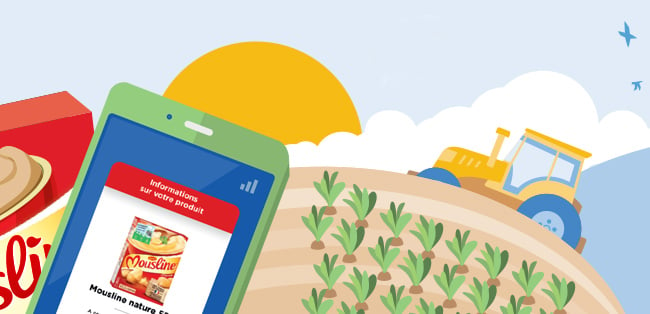Nestlé and Carrefour today announced that they are giving consumers access to blockchain data for Mousline purée in France. This is the first time that Nestlé is sharing information on its products with consumers via a blockchain platform.
Consumers can use their smartphone or other device to scan a QR code on the Mousline packaging. That lets them follow the journey of the product from the Nestlé factory in the north of France to Carrefour stores. They can see the production date, quality control parameters, storage times and the location of warehouses. In addition to the blockchain data, consumers will also find information on the farmers who supply the potatoes for Mousline and how the puree is made.
Nestlé started using blockchain in 2017 when it joined the IBM Food Trust as a founding member. The IBM Food Trust aims at reinforcing traceability of food products. Nestlé is testing blockchain technology to create better transparency and visibility of the whole value chain of the products.
In October 2018, Carrefour joined the IBM Food Trust. Together with Nestlé, the two companies have been working with IBM blockchain technology to develop the pilot on Mousline purée.
“This Mousline pilot is the result of a successful partnership with Carrefour and a great step forward on our blockchain journey. We are using this technology to bring more transparency to our products by providing accurate, trusted and impartial information. That will benefit the whole value chain, including retailers and consumers,” says Vineet Khanna, SVP - Global Head Supply Chain at Nestlé.
Nestlé and Carrefour will test the blockchain platform with Mousline purée over the next few months. The pilot will help to understand the impact and scalability of the technology, and inform decisions on further developments. It is part of Nestlé’s wide range of blockchain test projects, ranging from logistics to sustainability, designed to help reinforce trust in food.
For more information, read the full press release (pdf, 200 Kb)



